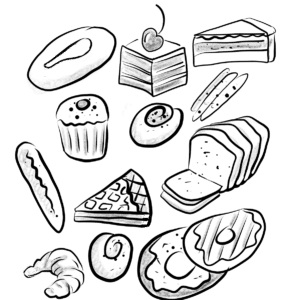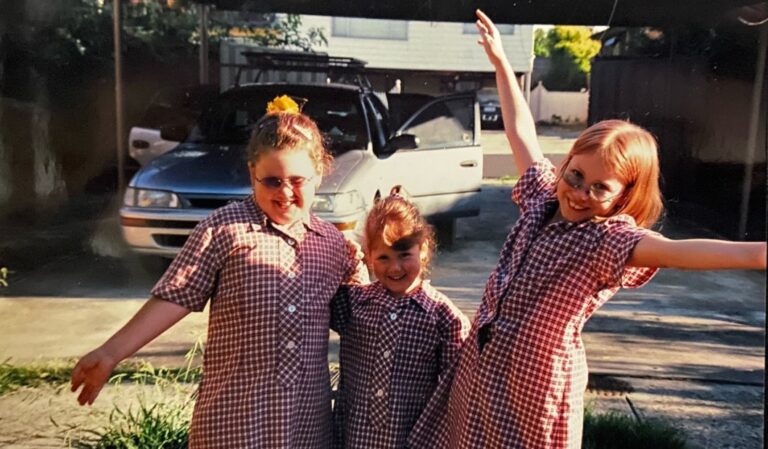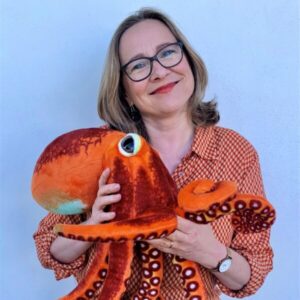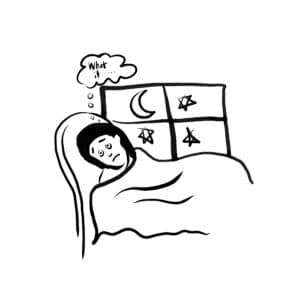
How Going Gluten-Free Transformed our Home
Hi, I’m Melissa, Beth asked me to explain how going gluten-free made a difference in our household. I have a

By Shelli Squires
I had no idea I had dyslexia until my youngest child was coming up to VCE (Victorian Certificate of Education in Australia), and we were applying for special consideration through VCAA (Victorian Curriculum and Assessment Authority). My children’s father hadn’t been aware of his dyslexia either. He received his diagnosis in his mid-forties.
When my eldest child started school, she was so ready. She knew her numbers, alphabet, colours, our address, my phone number, and her name. Since she was five months old, she loved sitting by the bookshelf, and she ticked off milestones early. She was a serious child, but she shone when a camera came out. Halfway through preps (her first year of school), she was not learning to read, although we had been reading every night with her since she was a baby. The school counsellor assessed her as having not been ready for school and/or being naughty. I knew that wasn’t the case, as did her classroom teacher.
At this point, I discovered my children’s father had never been good at reading or writing at school, and his older siblings had done his work for him until his talents were identified. Then he was sent to tech to study electronics, where he thrived.
I was unhappy with my daughter’s school situation, so I organised assessments with a paediatrician, who referred me to a psychologist, audiologist, optometrist, and an Irlen assessor (https://irlen.com/). By the time grade one started, I had found a tutor for her, my child had tinted lenses (to keep the words on the page), and we had the support of the principal, who accepted the hard-fought diagnosis and got extra help for my daughter. By the end of grade one, she was back to being ahead of all recorded milestones.
My second child did not receive a diagnosis until part-way through grade one. As they were already wearing glasses, adding a tint to their lenses was easy to help keep the words disappearing off the page. It took longer for them to catch up, as they were an unwell child who had multiple sick days off during kinder and school. Several educators throughout primary school labelled my second child lazy and accused them of not trying. This was not the case.
Fortunately, they qualified for a visiting teacher from grade three onwards until year nine. Lyn came to the school or home once a week for one hundred minutes to help them focus on primary learning points and became a friend, mentor, and advocate for my child. Their grade six teacher recognised their potential, saying that he had no concerns with their work, as it was to a high standard. Even if they had weeks off due to illness, their work would be handed in when they returned. This teacher never penalised them for handing work in even when it was six weeks late!
By the time it came to child number three, things were more challenging. I recognised all the familiar signs of dyslexia and knew what I was talking about, but dyslexia was still an unpopular diagnosis with teachers. I was just a parent and did not have a teaching degree to back up my concerns.
My youngest daughter, like her siblings, had a high IQ and covered her anxiety and frustration by being a fabulous mimic with a charismatic, outgoing nature and an auditory memory like an elephant. It took until year 7 for her to be diagnosed with dyslexia.
These were essential as they kept the words on the page and enabled my children to learn to read.
From 1987 to 88, I lived in the USA for a year as an in-house nanny/nurse/personal assistant. I learned about dyslexia from my American family because their eldest child, aged ten, had inherited dyslexia from my boss, his mother. My 10-year-old charge was a brilliant, engaging, and enquiring conversationalist who used the New York library for the blind to help his studies. The audiobooks helped him with visual reading while he was auditorily reading.
When my first child was diagnosed with dyslexia, I remembered my US family and reached out to Vision Australia (an organisation supporting the visually impaired). As dyslexia is a visual learning disorder, my three were eligible for books on tape, disk, and later online. Throughout school, I have not only purchased their hard-copy books but also borrowed them from the Vision Australia Library. My third child still has difficulty settling down to read books for pleasure or study, so voice-to-text and text-to-voice programs work for her.
From an early age, I had all three in music lessons (instrumental and voice) and drama classes, where they were free to express themselves. My third child described after-school drama classes to her friend’s mum as “a place to dance, scream and sing and not get in trouble for it.”
Advocating for my child didn’t make me a popular parent at school, but I was there for my kids, not the sash. Some teachers questioned if dyslexia existed. I fought for my kids and have continued to do so. However, I won the support of a few teachers. Once they saw my child’s progress, they would seek me out, requesting information to help other children with similar issues.
Even though my family members share the same dyslexia diagnosis, we are all different with our unique strengths and weaknesses. I have been fortunate that my children have always strived to learn and achieve, but learning came at the cost of extreme anxiety, panic attacks, and depression.
It was essential for us to find specific tools to fit each child’s unique needs. Even now, with my kids being well past schooling, they are still studying and learning. I help by listening to their work and editing assignments (sometimes right up to the submission deadline of 11.59 PM). It has been a tremendous amount of work and is ongoing, but it is worth it.

Hi, I’m Beth. Seven years ago, when I discovered my son had dyslexia, I had a ‘light-bulb’ moment and understood this explained many of my own difficulties. Ever since, I’ve been on a mission to discover the best ways to wrestle what I like to call the dyslexia octopus.

Hi, I’m Melissa, Beth asked me to explain how going gluten-free made a difference in our household. I have a

I need nighttime anxiety relief. It’s 4 AM, and I’m reviewing what happened to Harry at school yesterday and wondering